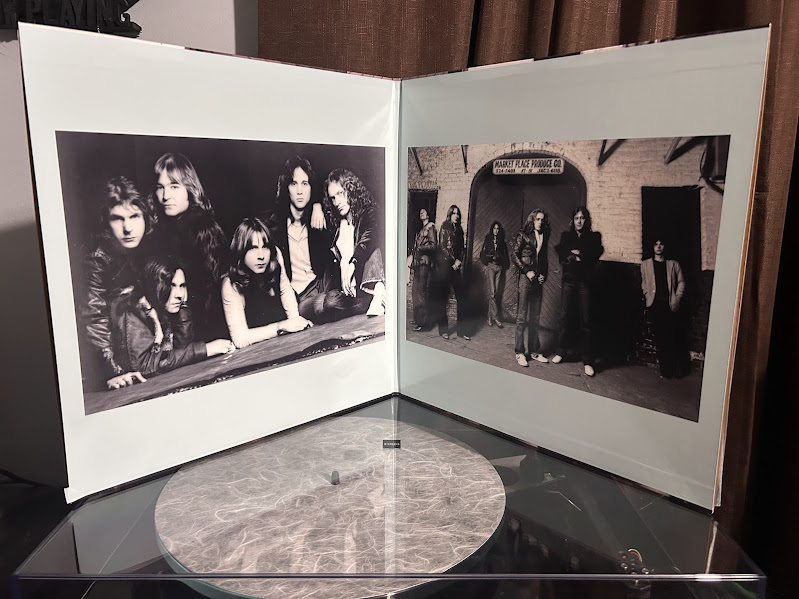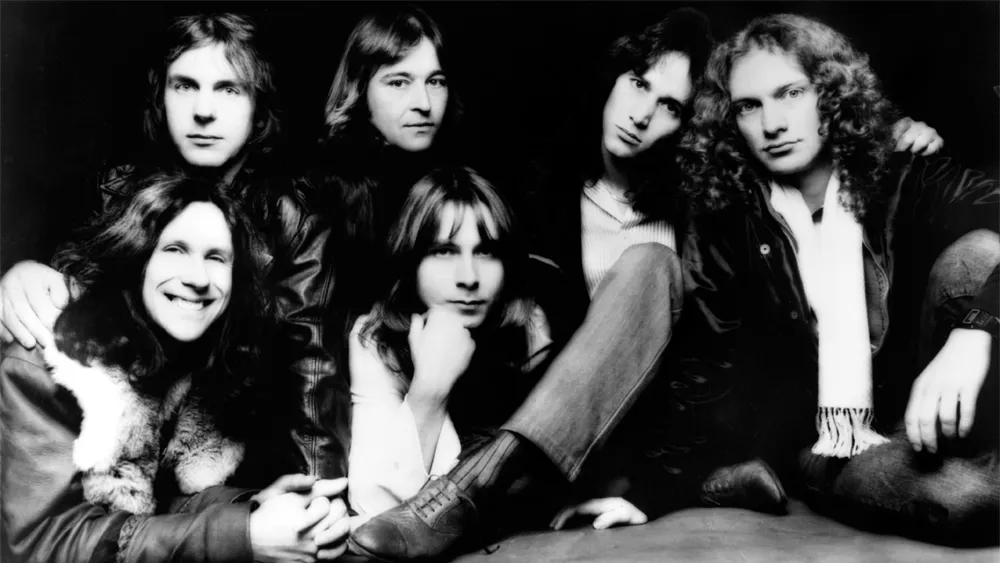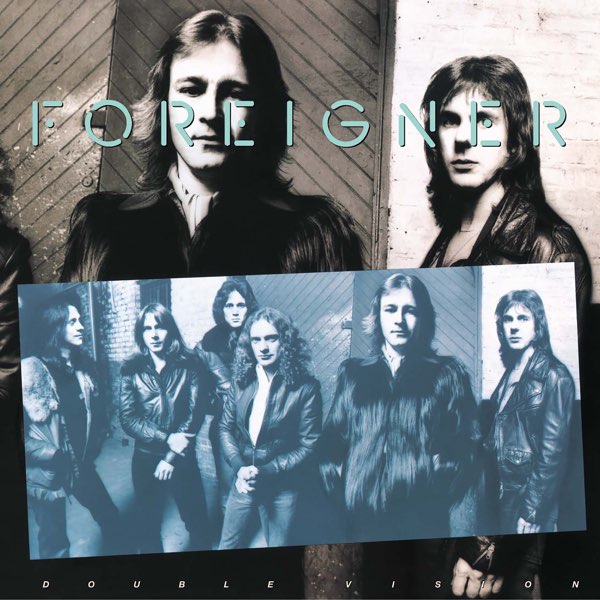Foreigner Doubled Their Recipe for Success on “Double Vision”
This pressing is a “hot blooded” experience!
Within a musical climate dominated by disco on the charts and airwaves, Foreigner became the poster boys of ‘corporate rock’ in the mid-1970s. A varied career of session work led guitarist Mick Jones to create an entity that reflected his musical vision of commercially viable headknocking rock. The cross-nationality of the group’s American (Lou Gramm, Ed Gagliardi, Al Greenwood) and British (Mick Jones, Dennis Elliott, Ian McDonald) members cleverly lent itself to the group’s name. Foreigner’s instantaneous success came with one of the most successful debut albums of all time, selling 5 million copies, earning three Top 20 singles, and going from headlining theaters to sports arenas within a year.
Running short of material and with an audience demanding more, Foreigner released their sophomore album, the cleverly titled Double Vision, in June 1978. Aided by the singles “Hot Blooded,” “Blue Morning, Blue Day,” and the title track, the album prolonged the group’s successful streak. Beyond the hits, Double Vision continued to home in on Foreigner’s winning formula already established on their debut. Not only was Mick Jones wanting to know what love was, but his presence as a composer reaffirmed his position as Foreigner’s creative leader, taking lead vocal duties on the acoustically-driven ballads “Back Where You Belong” and “I Have Waited So Long.” Al Greenwood went from being an instrumentalist standing behind a cascade of keyboards to earning a co-writing credit on “Tramontane,” the group’s only instrumental to appear on record.
Double Vision dodged being stigmatized as a ‘sophomore slump,’ but instead thrived as a ‘sophomore triumph.’ To date, it's sold over 7 million copies and is one of rock’s few albums that feature multiple songs, namely “Hot Blooded” and the title track, that sold 1 million copies as singles alone, a rarity for the genre. Those respective tracks endured an almost career-long lifespan in Foreigner’s live set, being performed virtually at every show by lineups ranging from the original sextet to the ‘official tribute band’ that doesn’t bear any original members.
The impact of Analogue Productions’ Atlantic 75 pressings, in terms of sound quality and presentation, always outdoes the intent of the original pressings. Instead of faithfully replicating Double Vision’s single-pocket jacket, it's presented for the first time as a gatefold featuring more of Norman Seeff’s photos of the group. It becomes predictable to see Atlantic’s familiar red/green label on most of these releases, but faithfulness to the original is intact with the album’s metallic silver custom label.

Mick Jones’ chugging guitars and Ed Gagliardi’s steady bass line rev up the opening of “Hot Blooded” like a fired-up engine. Jones’ ability to build upon layers of guitars contributes to his rich tone. The 45 rpm treatment uncovers aural Easter eggs that sound more prominent on “Blue Morning, Blue Day,” particularly the harmonies and walking piano melody. Lou Gramm’s vocals are the secret sauce that gave Foreigner both grit and soul, and they shine on the proto power ballad, “You’re All I Am.” The harmonies are separated exquisitely, and Dennis Elliott’s kick drum offers a heavy-handed punch that balances out the track’s airiness. The opening crescendo on “Love Has Taken Its Toll” sounds three-dimensional and sets the pace for a slow-burning rocker that gradually builds with tambourine hard panned to the right and Ian McDonald’s saxophone solo.
Double Vision’s title track imposes itself on the listener with its explosive guitar riffs, yet the arpeggiated keyboards give the chorus a dreamy quality. Acoustic guitars glisten transparently on “Back Where You Belong” and “I Have Waited So Long.” Each track holds its sonic trademarks, whether it's Al Greenwood’s spacey Moog synthesizer on the former or Ian McDonald’s intimate saxophone on the latter. “Lonely Children” is a rocker that grooves with emotion, mounting to an engaging chorus where Gramm’s vocals counterpoint the harmonic chants. The piano and bass in the ethereal middle section broaden the lower depths of the soundstage. Bombast is traded for looseness on “Spellbinder, the album’s closing track. Ed Gagliardi’s bass, riding in the middle between amplified and unplugged, has great texture and meshes amidst the melodrama of huge guitar chords and washes of string synths.
Double Vision, being Foreigner’s best-selling album, is a no-brainer for Analogue Productions to embrace the album as one of the goldmines of Atlantic Records’ catalog. Any record shopper can scoop original pressings for the price of lunch, but this pressing serves as a feast.











































.png)








